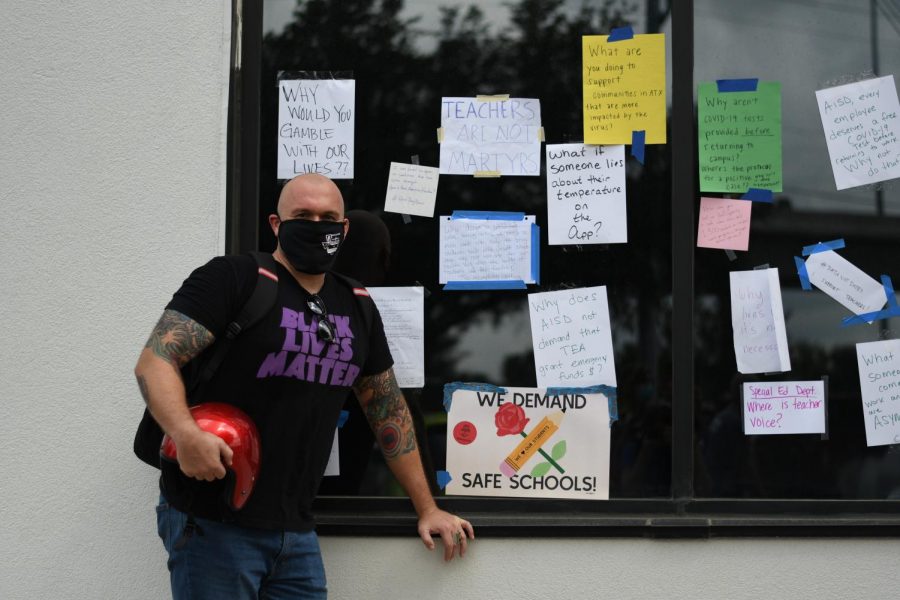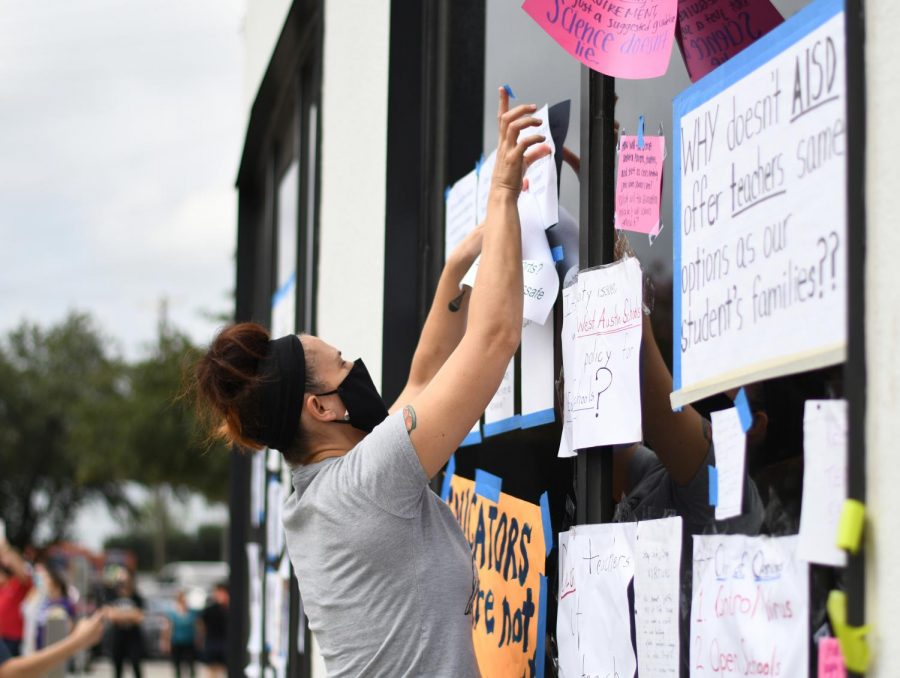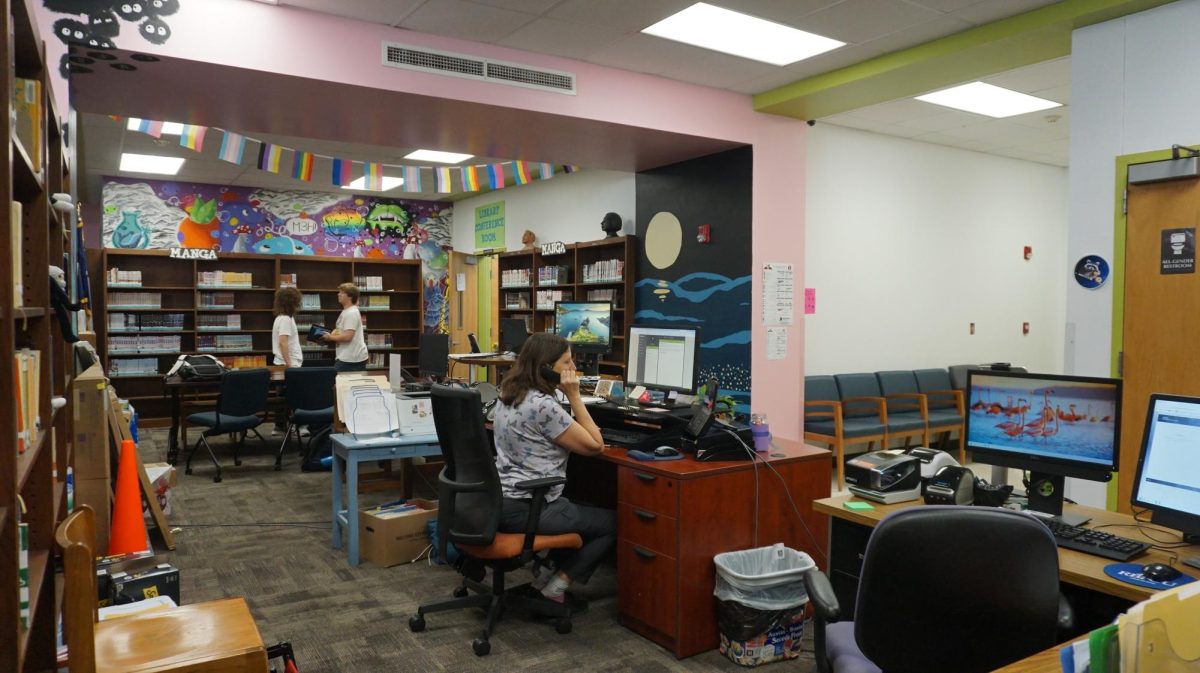Nikki Northcutt feels drained. She feels drained from being stuck inside because of COVID, teaching seven virtual classes and raising her son while trying to maintain a social life. On top of that the English teacher has been doubling as an advocate for her fellow educators who are being forced to come back to school in the middle of a global pandemic.
“I have waves of where I’m able to advocate,” Northcutt said. “I’ll write letters, I’ll talk to the principal, and then I just can’t do it anymore. I don’t have the energy or the time.”
For those times, Northcutt became a member of Education Austin, AISD’s teacher union, and decided to take a stand. They have written a set of demands to TEA, asking to allow for decisions to be made on a districtwide level.
TEA, or Texas Education Agency, oversees statewide public education. They distribute funding, administer standardized tests and manage learning curriculum. Since October, TEA has said that all teachers must return to in-person school.
While some were granted accommodations to stay home because of their health or medical issues, the majority had no choice but to come back in person. To ensure that teachers attended, TEA has tethered school funding to attendance rates.

“TEA is holding funding over our heads like it is a weapon,” said Robert Bucher, the head of the teacher union at McCallum. ”They are putting pressure on students and teachers to return to the classroom, implying that they’re going to punish districts who have low student attendance. It’s ludicrous because we can’t control whether parents choose to keep their kids home.”
Education Austin decided to take a stand. They have written a set of demands to TEA, asking to allow for decisions to be made on a district wide level.
“We understand TEA’s responsibility to fund schools on a statewide level,” the statement read. “We want to recognize that keeping our children, faculties, and community safe is best served on a local level. It is here we can more accurately evaluate and address the needs of our entire school community. As one of the over 1,022 ISDs [independent school districts] in Texas, we are entrusted to make countless decisions to meet the safety and educational needs of our students, faculties, and their families every day. Education is our job, but safety and well-being are our responsibility.”
But Education Austin can’t do much more than ask. Texas is a right to work state, meaning that picketing or striking is illegal. This makes it very difficult for the union to create improvements. Instead, their main tactic has been raising awareness with the public.
Since this school year began, Education Austin has held car-led marches, created petitions, and launched letter writing campaigns. They have connected with political officials, talked with news sources and are making sure their voice is heard. But ultimately, any substantial policy change must be the decision of TEA.
“I just don’t understand why we can’t make decisions based on logic and safety,” Northcutt said. “I know that there are kids who need to be in (in person) school. And I know that there are teachers who are willing to go up to school and teach. But there are ways that we can do that and still be safe.”















William Myren • Mar 9, 2021 at 9:42 am
Standing for what you think is needed, vary inspiring, TEA has definitely not made this essay, so I think you’re request is completely justified.
Morgan Eye • Mar 7, 2021 at 10:12 pm
It’s teachers like Miss Northcutt and all those who have decided to take a stand that inspire me to take charge and speak up for my needs. I agree with the message- the TEA has no right to threaten teachers this way. We are all trying to stay safe, and teachers should not be punished because students are staying home. On top of that, teachers should be able to choose how they go about their safety! It really goes to show what the TEA really considers to be priority.
This article was inspirational and motivational; It makes me proud to go to school with such advocative teachers. I would like to know what I can do as a student from home! The TEA needs to be more empathetic and lenient during these already difficult times.
Amaya Collier • Mar 5, 2021 at 7:22 pm
This article is fantastic! I love that the teachers are taking a stand and not letting TEA bully them by threatening to take away school funding. That behavior is unacceptable and needs to be addressed. I agree that safety of students and staff should be the number one concern.